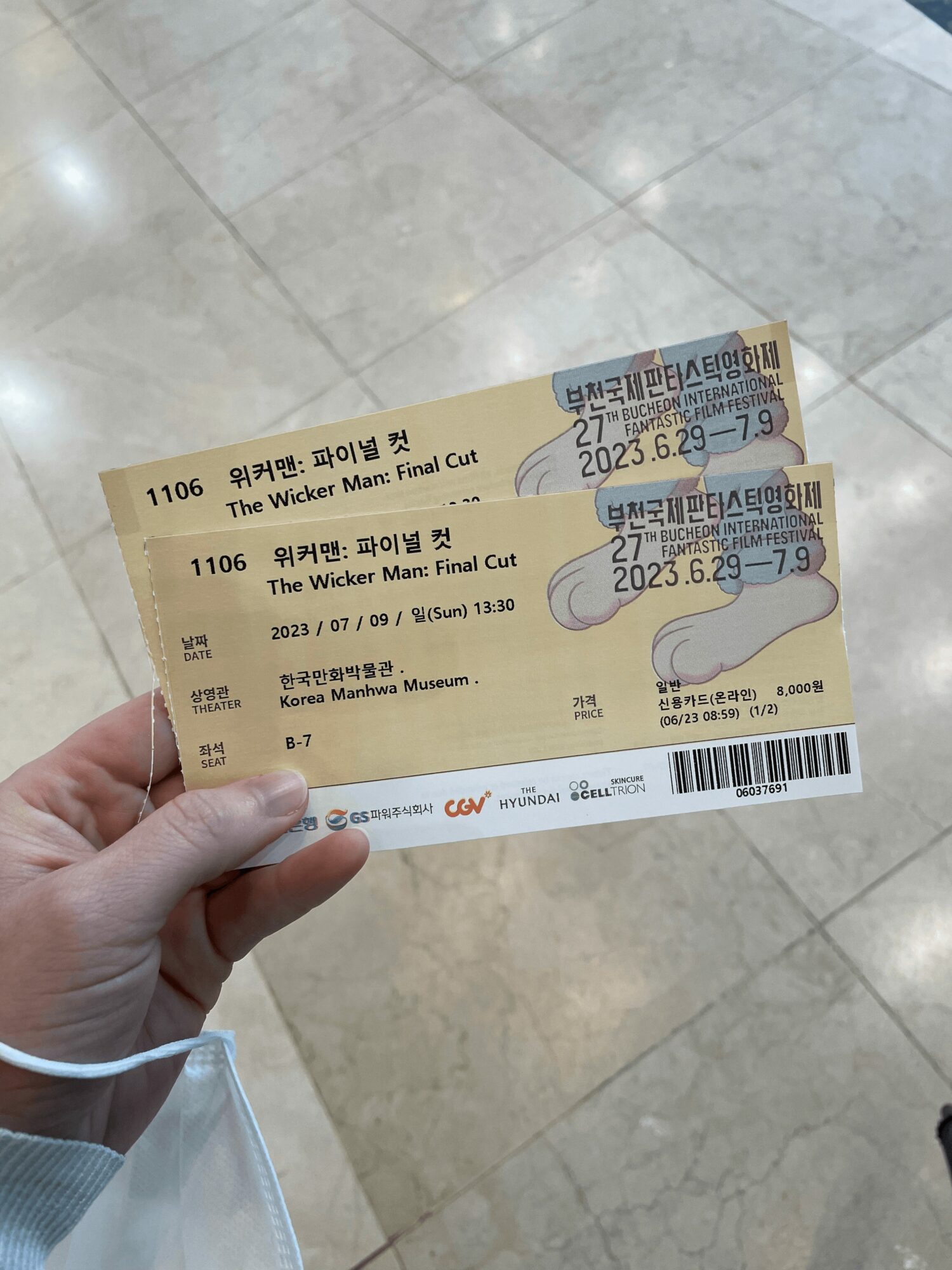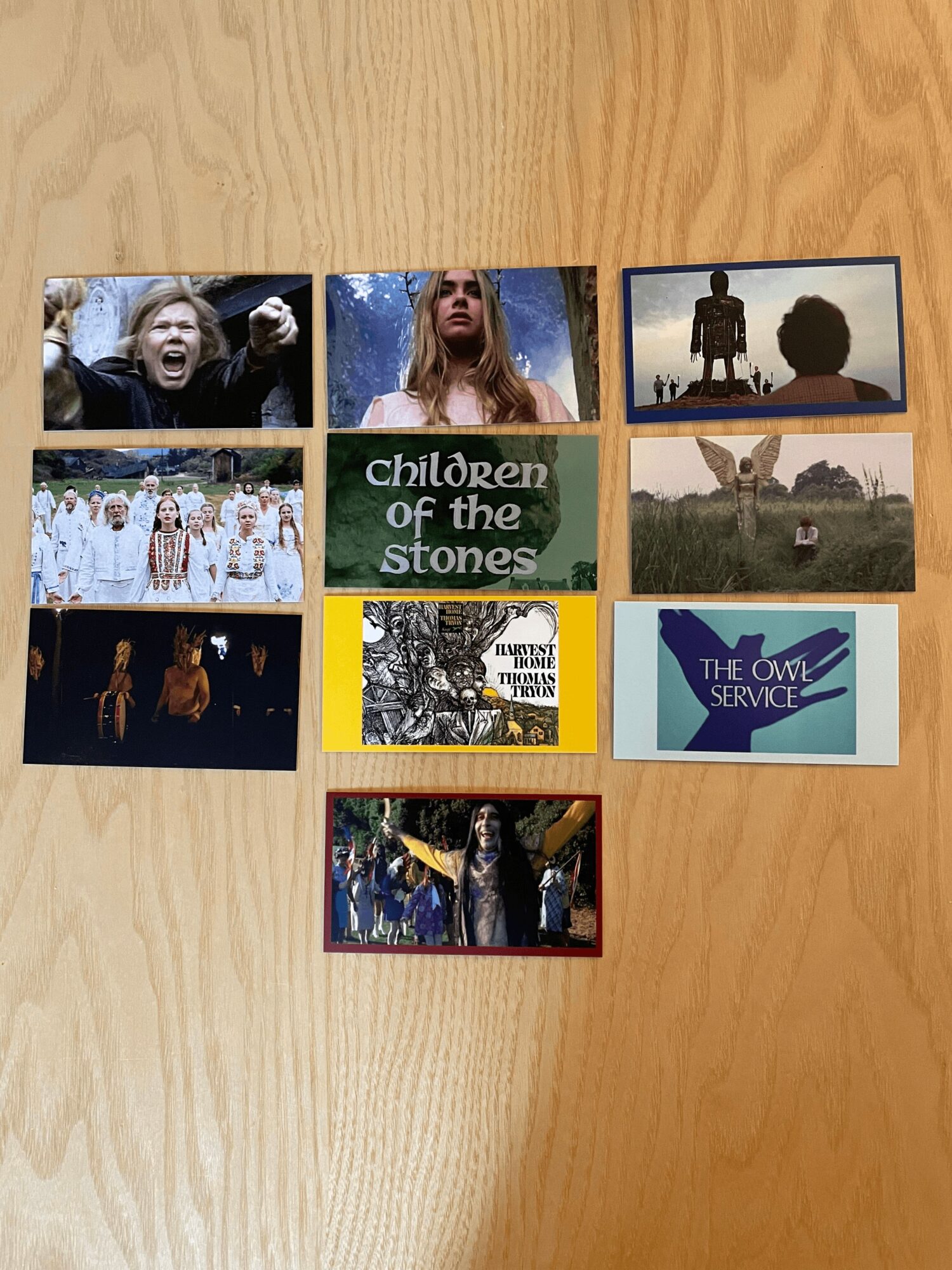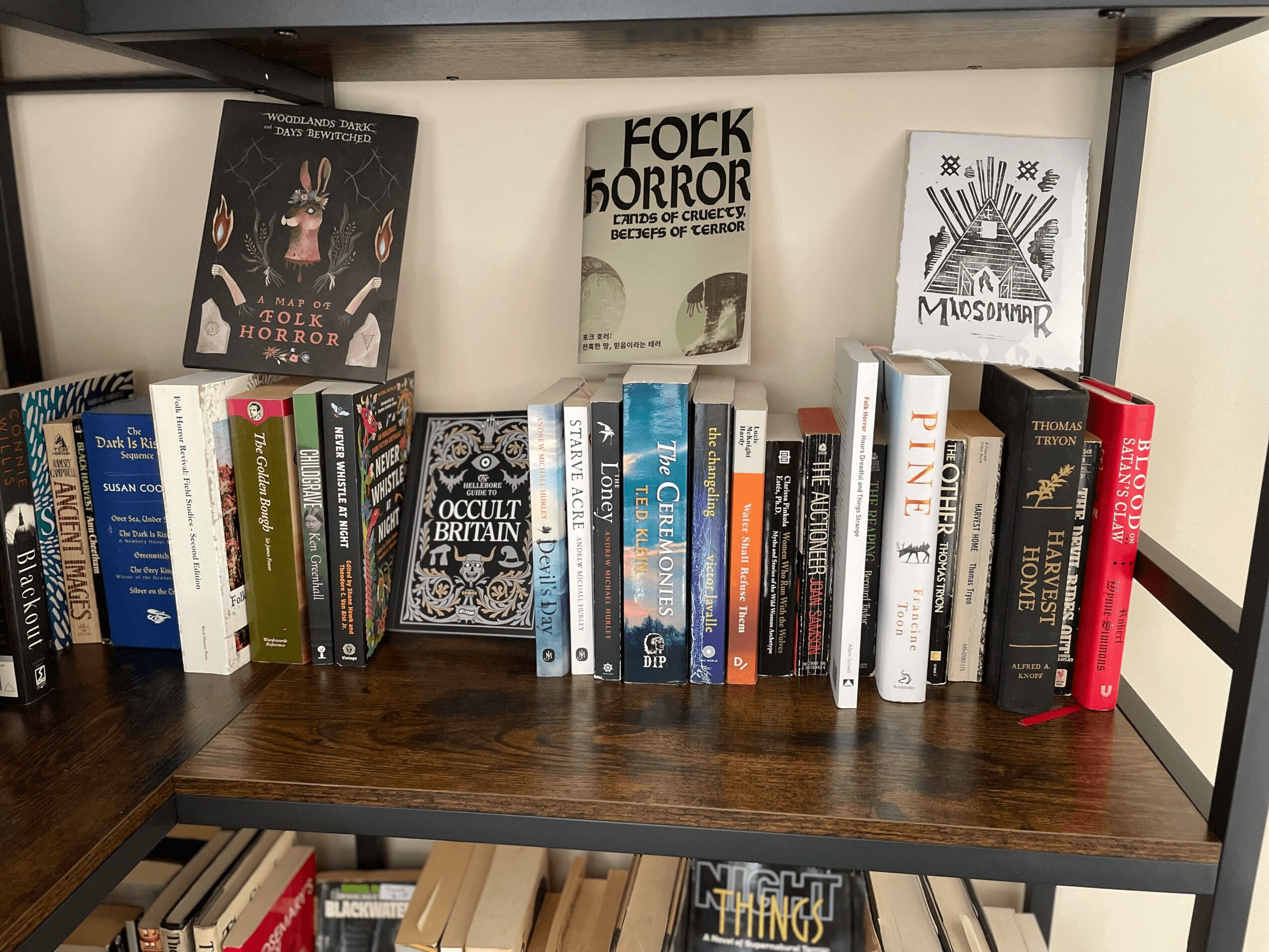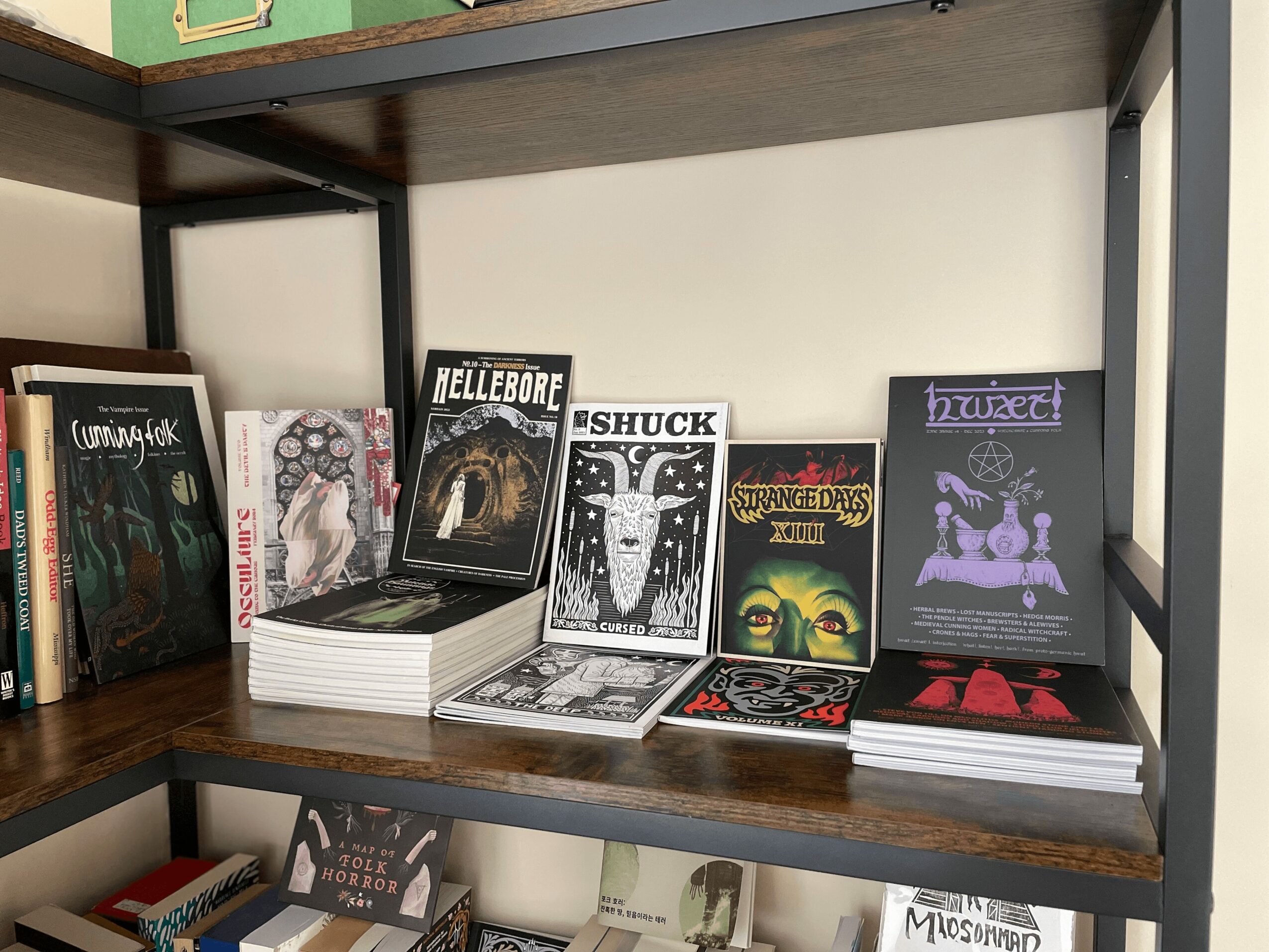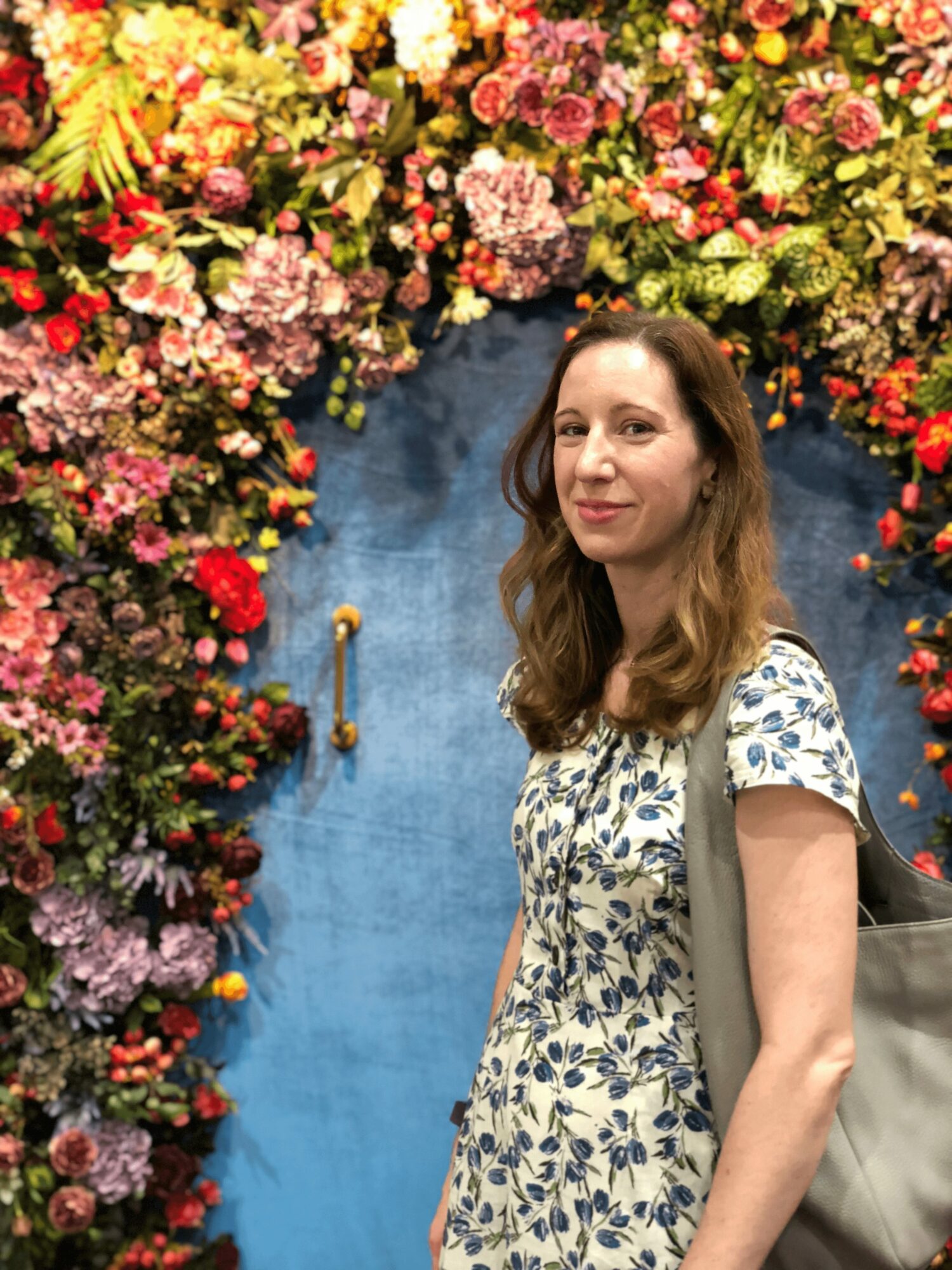 Today we’d like to introduce you to Rowan Lee
Today we’d like to introduce you to Rowan Lee
Hi Rowan, it’s an honor to have you on the platform. Thanks for taking the time to share your story with us – to start maybe you can share some of your backstory with our readers?
I started my website, The Harvest Maid’s Revenge, in 2020 because I had become obsessed with folk horror and needed an outlet for my thoughts. I was living in Seoul, South Korea, and city life had me longing for a peaceful existence in the countryside. For those who aren’t familiar, folk horror is a subgenre that usually focuses on stories about remote communities who have held onto the “Old Ways” of living, which often involves farm life and a pagan belief system. You’ll also see stories that explore the darkness in folklore, folk customs, and fairy tales. Two of the most famous examples of folk horror are the 1973 movie The Wicker Man and the 2019 film Midsommar. Both movies are about isolated pagan cults who appear to be welcoming to outsiders, but it’s really a trap.
What I like about folk horror is that it’s a double-edged sword. On the one hand, you can see how the societies in these movies are appealing. The people seem happy and they have a sense of purpose. Living off the land seems natural and fulfilling compared to our modern-day “email jobs.” In reality, people are anxious about the climate, so the idea of going back to the land or spending time in nature is attractive. On the other hand, we know that these characters in the folk horror movies are the bad guys, even though they believe they’re doing the right thing. Sometimes, ordinary people acting on good intentions can be scarier than a masked man with a knife.
When I first started writing about folk horror, I had no idea it was going to become a Thing. But around 2021, interest in the subgenre exploded. A documentary was released, several anthologies were published, and a whole lot of novels and movies were coming out around the world, all exploring similar themes. I wanted to figure out what was going on. Like, why was folk horror suddenly resonating with audiences in such a big way? I wrote a series of articles on my website called “Folk Horror Fever” that looked at the genre’s themes and how they were connected to life in the early 2020s.
Writing about this topic has opened up some interesting opportunities. I’ve been invited to speak about folk horror on a podcast, I’ve been asked by authors to review their books, and I’ve gotten to know some of the key figures in folk horror’s recent resurgence, including scholars, critics, and directors. I’d like to take everything I’ve learned and write a book someday.
We all face challenges, but looking back would you describe it as a relatively smooth road?
My challenges are ones that will be familiar to anyone working on creative projects. The number one issue is time. It’s hard to find the time and the energy to research and write after working a 9-6 job. Beyond that, though, the last few months have been especially turbulent. My husband–he’s Korean–was working on getting his green card so we could move to the United States. Once his visa was approved, we both had a lot on our plates, with making a big international move and looking for new jobs. Even though I’ve had more time lately, I’ve been so distracted with applying for jobs that I haven’t had as much motivation to read and write.
Since my writing deals a lot with pop culture, I feel like I have to stay on top of new releases. There are so many new folk horror movies and books coming out that I often worry that I can’t keep up. Social media, in particular, moves so quickly. I’m glad that folk horror has become mainstream and that more people are talking about it. That’s good for me, because it means that I have a bigger audience for my writing. But as personally fulfilling as it for me to engage with other fans, maintaining the site is still something that I’m doing as a hobby. It’s hard to step back sometimes and focus on more pressing life matters. Like, I really wanted to start a magazine, which would be more of a collaborative project, but I’ve had to put that on the back-burner for now. It’s not something that’s practical for me to do, but I hope one day I’ll have the opportunity to create something more tangible.
Thanks for sharing that. So, maybe next you can tell us a bit more about your work?
Until recently, a lot of writing about folk horror was fairly academic, the work of film scholars, folklorists, and literary critics. That’s still the case. While I like to think that my writing is as well-researched as academic work, I’m also trying to connect folk horror to more everyday things. I find it in places that most people wouldn’t expect. For instance, I’m a big fan of comedic actor Matt Berry, who’s currently starring on What We Do in the Shadows, and a lot of people don’t know that he’s also an accomplished composer and singer-songwriter. A couple of his albums, Witchhazel and Kill the Wolf, really lean into some heavy folk horror themes, so I wrote about them. That article was a “hit,” relatively speaking. I also wanted to explain how folk horror moments can pop up in movies that are very much NOT horror, so I wrote about Borat. Even though Borat is a comedy, there’s a lot in there about the horror of American history that still peeks out in the current era, like people who say they want to bring back slavery. These articles might seem silly or trivial–and they were certainly fun to write–but I like calling attention to the ways that folk horror kind of lurks in the background of our lives. It’s always been there, but we didn’t always have a way to describe it.
I don’t know if this really sets me apart, but I take a pretty inclusive view of folk horror, which can be a controversial stance among some fans of the genre. You’ll get hardliners trying to argue that folk horror belongs to Britain, since the subgenre is generally agreed to have emerged in British film and television in the late 1960s and early 1970s. Some will argue that the US is too “young” to have real folk traditions. I take the view that folklore is universal. Every place has superstitions and isolated groups of people that might seem strange to mainstream society. Wherever you have outsiders, wherever you have older ways of living coming into conflict with the modern age, you have folk horror.
Have you learned any interesting or important lessons due to the Covid-19 Crisis?
Surprisingly, I’ve written a lot about the connection between the Covid-19 crisis and folk horror’s massive popularity. Historically, whenever societies experience a period of unrest, there’s a surge of interest in folklore and farming. Sounds weird, right? But it makes sense that scared people will grab onto things that are safe and familiar. If you’re feeling insecure in your identity, then folklore and traditions are ways that you can feel connected to something larger than yourself. And if your social safety net feels unstable, then going back to the land and becoming a subsistence farmer starts to sound like a good bet.
In the early days of the Covid-19 pandemic, the supply chains were disrupted and people started looking for workarounds, like getting a few laying hens for a guaranteed source of eggs. Homesteading became a popular idea. Even if people didn’t actually buy farms or start gardening, it was obviously a big fantasy that they had, and you can see that in Instagram trends like “cottagecore.” There was this whole aesthetic about living in the woods or foraging for mushrooms that was pretty attractive because it made the isolation of the pandemic feel more glamorous than it really was.
Folk horror, then, is the side of all this that represents our anxiety about the world. Like, sure, the countryside is pretty and it’s fun to put on a prairie dress or cosplay as a milkmaid, but you can’t shake the feeling that something terrible is going to happen. Maybe the crops are going to fail, or the community is going to fall into mass hysteria and go on a witch hunt. Or, you know, a virus is going to make everyone sick. So, it seemed appropriate to me that folk horror became hugely popular during this period of uncertainty where it felt dangerous just to go outside and be around other people.
Contact Info:
- Website: https://theharvestmaidsrevenge.com/
- Instagram: https://www.instagram.com/the_harvest_maids_revenge/?next=%2F
